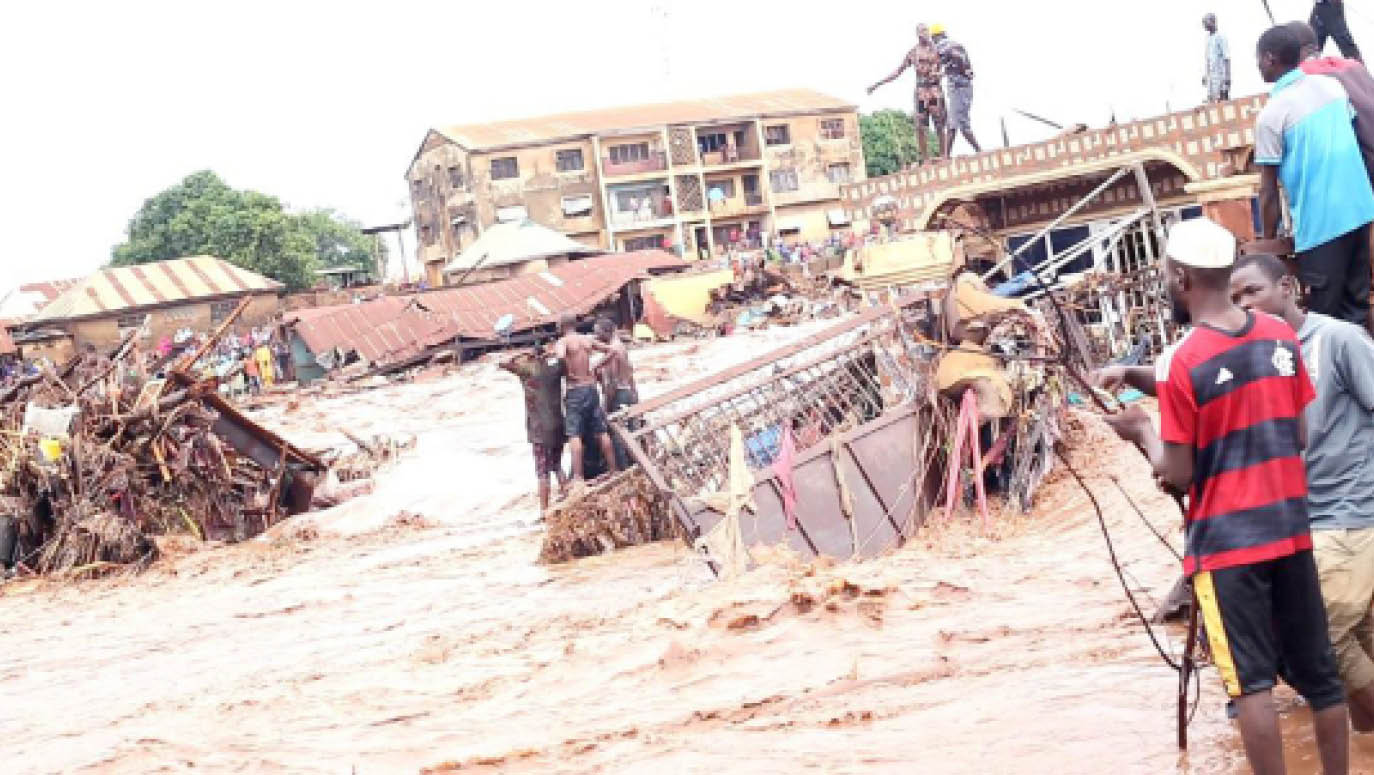Survivors of the devastating flood that swept through Mokwa, the headquarters of Mokwa Local Government Area in Niger State, have shared harrowing stories of how they narrowly escaped with their lives—many losing their loved ones in the process.
Aishatu Jibrin, one of the survivors, recounted how she and other adults escaped death by breaking through the ceiling. She lost all her belongings and her four children—two boys and two girls—to the flood.
“Since the incident, we’ve been sleeping outside because we have no relatives in Mokwa,” she said. “I came here from Bida because of marriage. The government hasn’t told us where to sleep, so we’ve been in the open.”
Aishatu described how the flood caught them off guard. “We woke up peacefully that morning. We hadn’t even made breakfast when people began shouting that we should run. We thought they meant to run inside, so we did. Then water rushed into the house. We locked ourselves in a room, but the water kept rising. We broke through the ceiling and climbed up. Eventually, we broke the roof and escaped to the top. But while we adults made it up, the water had already swept away our children. Then the building collapsed.”
She pleaded with the government to offer direct support to the victims.
In another tragic account, Fatima Musa, wife of the late Musa—a teacher at Hakimi Secondary School—tearfully recounted how her husband died trying to save their five-month-old baby.
“When we heard people shouting, we ran outside and saw a massive wave of water coming toward us,” Fatima said. “I told my husband the baby was still inside. As he ran back in, the water slammed the door shut, and the building collapsed on him and the baby.”
Fatima, now a widow and mother of three, said her husband had been struggling to provide for their children’s education. “I need help to continue their education,” she said. “Our first child is in Primary One, and the second is in Nursery One. His death is the worst thing that has ever happened to me.”
Since the flood struck on Thursday, Fatima said they had yet to receive any relief support. On Sunday, the family held the three-day Fidau prayer for her husband and their late baby at their home in Anguwan Hausa.
Four days after the tragedy, many victims remain missing.
Adamu Yusuf, a resident of Anguwan Hausawa, lost his wife and their 43-day-old baby. The flood also claimed seven other members of his family. His sister, her two children, his mother, and several other children were among the missing. So far, the family has recovered and buried only one body.
Seven-year-old Abdullahi, one of the Almajiri pupils who survived, recalled how he lost his three brothers—Shaifullahi, Abba, and Abdullahi—who had joined him in Mokwa for Quranic education from Sabon Birni, Sokoto State.
Mariya Usman reported that the flood wiped out 18 members of her family. Rescuers have recovered only nine bodies so far. “Among the nine still missing are four of my younger brothers, my elder brother’s wife, and his four children,” she said. “He lost his entire family.”
Alhaji Tanko Bala, leader of the Hausa community in Mokwa, confirmed that most victims were sleeping in open spaces due to a lack of shelter.
“Nobody sleeps at the primary school camp set up by the government, except for a few Almajirai. It’s uninhabitable,” he said. “If the government truly wants to help, they should provide proper sleeping materials. People are lying on bare floors.”
Alhaji Tanko noted that the National Emergency Management Agency (NEMA) had delivered some relief materials—200 bags of 25kg rice, 150 cartons of spaghetti, tomato paste, and 200 mattresses—but authorities returned the mattresses after realizing there was no official camp. They also took back tents they had brought but failed to set up.
Tanko criticized how some individuals were exploiting the victims and called on the government to provide urgent support. He added that many Almajirai were still missing. “The Quranic school had over 500 pupils, and not even the headmaster knows how many are missing. We’ll only know with time,” he said.
Since Thursday, the community has been holding burials daily. “On Thursday alone, we buried people until 2 a.m. So far, we’ve buried over 100 people and are still searching for around 150. The flood destroyed 266 houses and killed over 100 goats,” he said.
Tanko confirmed that the Niger State Government had sent 6,000 bags of 10kg rice as additional relief support.



